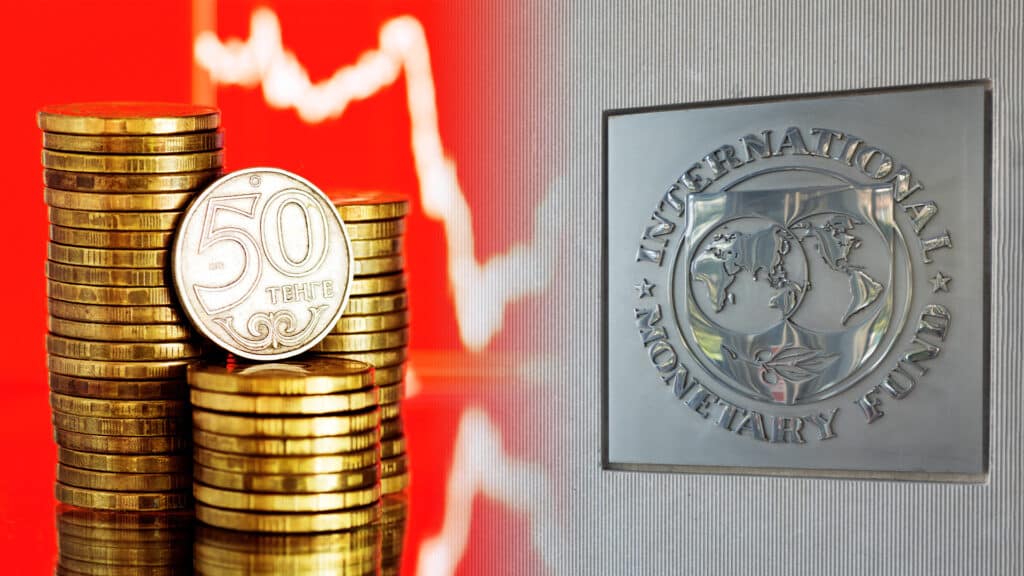IMF keeps its pessimistic outlook for Kazakhstan’s economy

The International Monetary Fund has kept its pessimistic outlook for Kazakhstan’s GDP growth at 3.1% this year, whereas the country’s government expects its economy to grow at 5.3%.
The main reason the IMF is so pessimistic about Kazakhstan’s GDP growth is a delay with the launch of the Future Growth Project at Tengiz. Analytics believe that oil production in the country will stagnate, while the slowdown of inflation is too gradual. The rate will reach the 5% threshold no sooner than 2026 or 2027.
The IMF is also pointing out that high volatility of oil prices, possible disruption in oil exports via the Caspian Pipeline Consortium, slowing growth in trading partners (Europe and China), uncertainty around the situation in Ukraine and escalation of regional conflicts in the Middle East can pose great risks for Kazakhstan. For instance, the rapidly worsening situation in the Middle East has already spurred energy source prices upward, which can cause the deterioration of monetary conditions and a decline in business activity around the globe.
Even though the situation in the Middle East is going from bad to worse, the IMF forecasts a decline in oil prices by 2.5% to $78.60 per barrel this year and by 6.3% to $73.70 per barrel next year. This decline will be driven by a slowdown in oil demand in China, a rapid increase in oil output in OPEC+ non-member countries and growing oil exports by OPEC+ member states that want to keep their market shares.
However, the international organization admits that Kazakhstan’s GDP can grow by 5.6% in 2025 when oil production at Tengiz is expanded. On the contrary, analysts from Halyk Finance believe that the IMF is too tough in its pessimistic forecast of Kazakhstan’s economic growth.
«Even though the Future Growth Expansion project at the Tengiz oil field has been delayed, the further inflation stabilization, high oil prices (above $80 per barrel) and implementation of long-planned infrastructural projects will support the economy this year,» Halyk Finance reported.
On the other hand, floods that hit many regions of the country, the decline in tax revenue starting this year, uncertainty in oil production and transfers from the National Fund put further economic growth at risk.
In turn, Kazakhstan’s cabinet forecasts the national economy to grow at 5.3% minimum. Last year, the country’s GDP grew by 5.1%.
In early April, the Asian Development Bank aggravated its 2024 outlook for Kazakhstan’s GDP to 3.8% compared to 4.3% in its previous survey. The bank expects the country’s economy to grow by 5.3% in 2025.
The Eurasian Development Bank, the U.N. and the Applied Economics Research Center are a bit more positive as they predict GDP growth at 5%, 4.8% and 4.2%, respectively. President of Kazakhstan Kassym-Jomart Tokayev wants the cabinet to boost the national economy to $450 billion by 2029. To reach this goal, the country’s GDP should be growing at 6% minimum.

